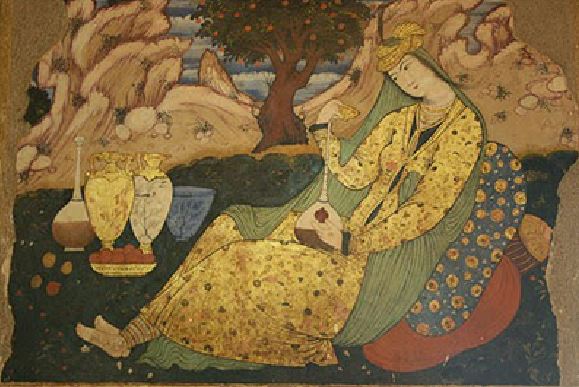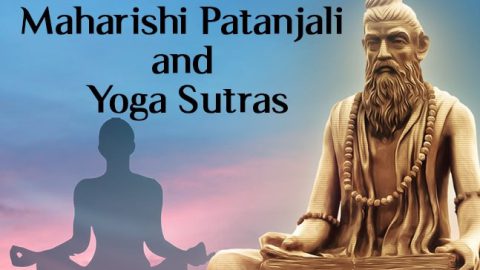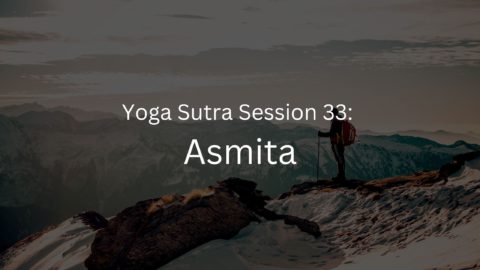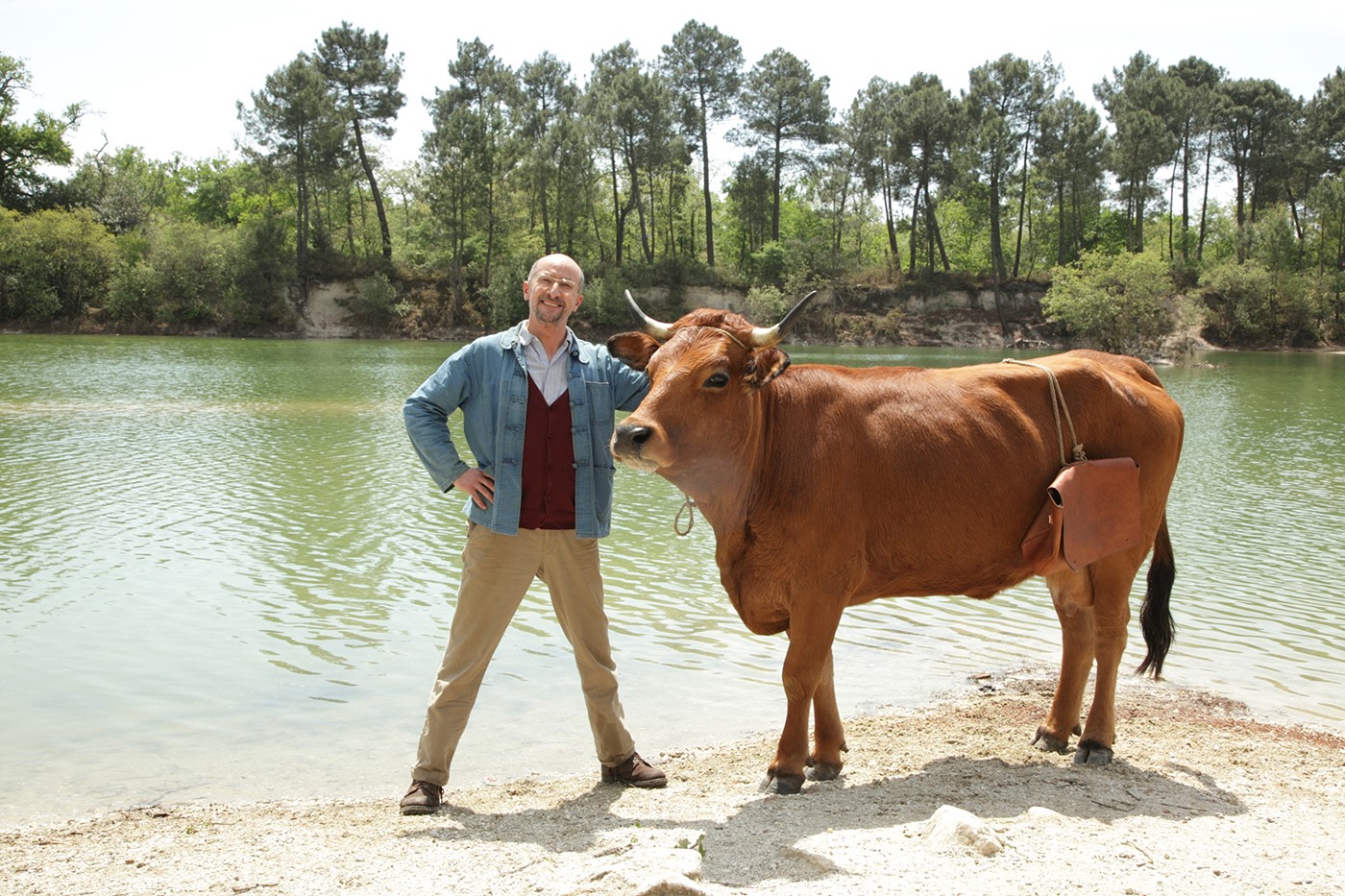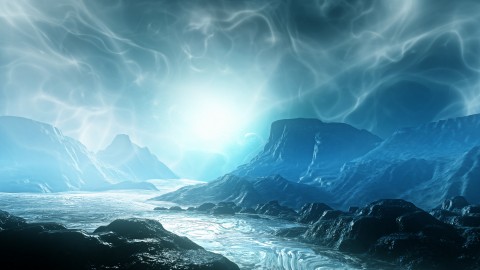ENLIGHTENMENT IS INDIVIDUAL, BUT DOES INDIVIDUALITY REMAIN AFTER ENLIGHTENMENT?
No. Individuality does not remain after enlightenment, but enlightenment is individual. You will have to understand it. A river falls into the ocean. When it has fallen the river has disappeared – there is no individuality of that river left, but only an individual river falls into the ocean. You fall into the ocean of enlightenment as an individual: you cannot take your wife with you or your friend with you – there is no way. You go alone. Nobody can take anybody.
How can you take anybody? When you meditate you meditate alone. The moment you close the eyes and you become silent, everybody has disappeared – the wife, the friend, the children. The nearest are also no longer near; the closest are farthest now. In your deep silence, inner collectedness, you alone exist. This aloneness will fall into the ocean.
So, enlightenment is individual. Of course after enlightenment individuality disappears; there is no individuality. So remember this: you cannot go as masse; you cannot go as an organization; you cannot go as a sect. You cannot say, “Come on all Christians,” or “Come on all Hindus. I am going to enlightenment and I will take all the Hindus with me.” Nobody can take anybody else. It is absolutely alone. And that’s the beauty of it, the purity of it. In your absolute aloneness you fall into the oceanic nirvana. Just a moment before, you were a river; just a moment before, you were an individual – the very peak of individuality, a Buddha – and just a moment afterwards nothing exists. You are no longer a river; you have become the ocean. Now you cannot even say, “I am.”
The ocean is; the river has disappeared.
You can say it in two ways: that the river has disappeared – one way, the Buddhist way; or you can say the river has become the ocean – another way, the Vedanta way. But both are the same. “The river has become the ocean,” or, “The river has disappeared; only the ocean is,” are only ways of saying the same thing.
WHERE DID WE COME FROM AND HOW DID WE BECOME?
From nowhere. And this word “nowhere” can be broken into two words; then it becomes “now here.” These are the two possible answers. Both are true because both mean the same. You come from “nowhere” or you come from “now here.”
When you ask, “From where?” you would like to know about the beginning.
There is none. You have always been; you will always be. Existence is beginningless, endless. It is not that somewhere it begins. It is not possible, because if existence begins somewhere on some date, day – as Christians say that it begins before Jesus, four thousand four years before – that means time existed before existence. That will be foolish because time is part of existence. That means space existed before existence – otherwise where will you put this newly created thing? – And space is part of existence.
Scientists say, in fact, space-time is the whole of existence. So time cannot begin because then another time will be needed. Then you will ask, “When did time begin?” Four thousand four years before? Monday, six o’clock in the morning?
Then there was time before: otherwise how did you come to know it is Monday, and how did you come to know that Sunday has passed, and how did you come to know that it is six o’clock and the morning? No, time cannot begin because then another time is needed. And if you say, “Okay. We say okay to another time,” then that other time cannot begin. Then further ahead another time will be needed. You fall in an infinite regression. You fall in an absurdity which leads nowhere.
Beginning is not there. And if the beginning is not there, there cannot be any end, because a thing that never begins cannot end. How will it end?
So you come from nowhere. That is one answer: that you don’t come; you have been here. From this arises the second and more relevant point: break “nowhere” into “now here.”
I have heard a story. There was an atheist, and he was a lawyer, and a very logical man. And to declare his faith he had written on his wall in big letters so whosoever would come would know – he had written in big letters: GOD IS NOWHERE. Then he became a father; a child was born to him. And the child began learning words, and it was difficult for him to pronounce the big word “nowhere.” So the child was reading – he could read GOD IS, but he couldn’t read NOWHERE; it was too big a word. So he broke it in two. He read, GOD IS NOW HERE. And I have heard that the father heard it and he was transformed.
Suddenly, something melted in him: the child had brought a message.
So break the word in two; become a child. When I say “nowhere” try to hear “now here.” Either you come from nowhere or you are born every moment now here. Moment to moment is birth. Moment to moment you die and disappear, and moment to moment you are born again. You are a process, not a thing: a thing is born – finished, then it dies. No, you are not a thing. You are not static.
You are a process, riverlike, flowing. Every moment you are being renewed; every moment you are being resurrected. Every moment you die, and every moment you are reborn.
If you become aware of the present moment you will become aware of this phenomenon also: that every moment you move into the black hole, you disappear, and again come anew out of it. Every moment this is happening, but you are not alert. That’s why you miss it. To see that interval, very intense alertness is needed.
And then you will not ask the second part of the question: “… and how did we become?” You are always becoming. Becoming is your being. You are always growing, always and always, and there is no end to it. Don’t think that there will come a time when you will become perfect and there will be no growth – because that will be death. There comes at no time such a moment. One goes on transcending – from one perfection to another perfection.
Go to the Himalayas. You see a peak and nothing else. Then you go to the peak and suddenly other peaks come into your vision. Then go to other peaks, and again many more peaks come into your vision. The more you grow, the more you see the possibility to grow. The more you become, the more doors open for your becoming – new vistas, new avenues, new dimensions.
Life is an ongoing phenomenon, a continuum. You never come to a point where you can say, “Now I have become.” And if you ask for such a moment, you are asking for suicide. Don’t ask that. Remain with the process. If you can remain with the process it is so beautiful: to be born again and again, to be rejuvenated again and again. If you ask that you would like to be perfect – like a dead rock – then no becoming is needed. You are asking for death: you are not a love of life; you have not lived and known life.
Live life, accept life, be alert to the passing moment, and all the mysteries will be revealed to you by your own presence of awareness. There is no other way.
You are coming from nowhere and you are going to nowhere. You are always in the middle; you are always on the path. In fact. I would like to say you are always the path, because the path doesn’t exist separate from you. When I say you are growing, don’t misunderstand me – you may think you are separate and you are growing. No: you are the growth; you are the becoming. Nothing else exists.
Then suddenly, in the whole becoming process, in the whole whirlpool of becoming, you find void, emptiness – sunyata – within you. And that space is wonderful. That space is what we call the benediction.
Tags: Benediction Pantanjali

